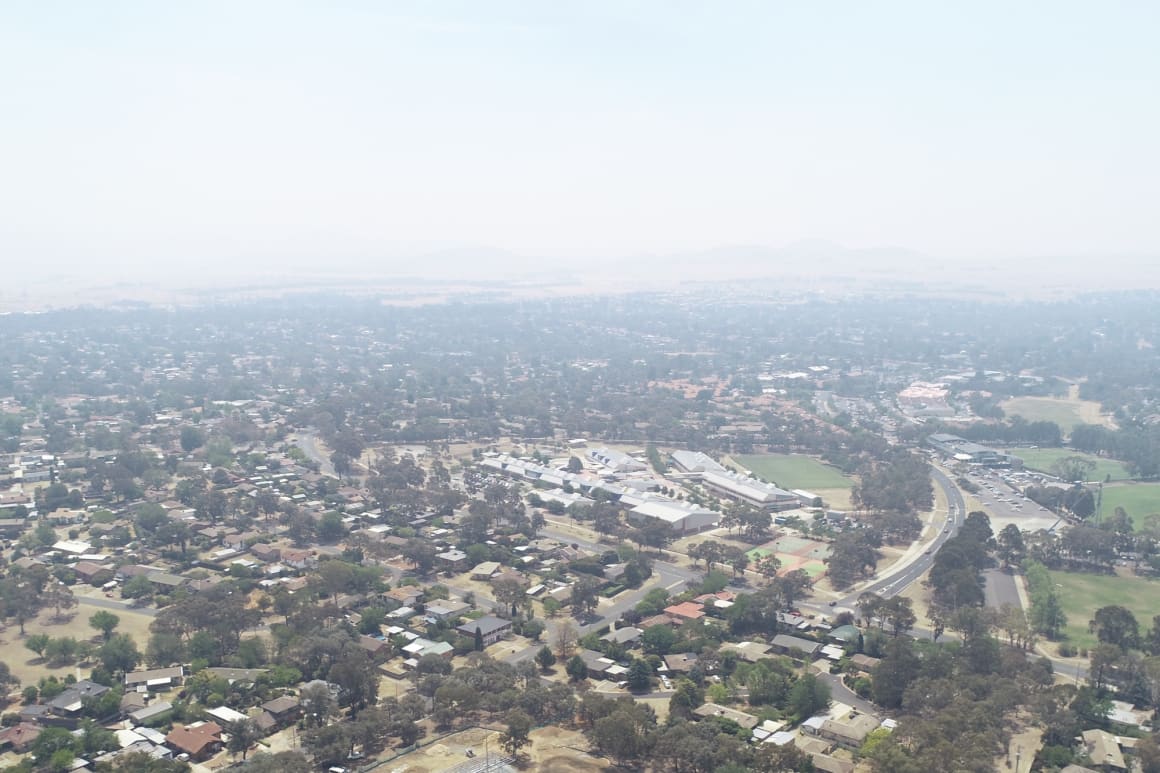How to protect yourself and your home against bushfire smoke

As Australia continues a fight against the relentless bushfires which are devastating the nation, it’s more important than ever to band together to keep each other safe. According to the Air Quality Index, smoke from the fires has seen Australian cities such as Canberra reach a reading of 7,700 – which is over 40 times worse than what is considered safe*.
The best thing you can do at this time is to donate – whether it be your time, money, expertise or home – to those in need and the courageous firefighters and support teams; help mitigate fire risk and keep yourself and others safe.
*Readings over 100 are poor, while readings over 200 are considered hazardous.
Here are some safety measures you can take when conditions are hazardous:
Place rugs or towels under doors
It may seem simple, but it’s an effective way to avoid smoke drafts from seeping into your home. An old rag, towel or rug will be suitable – ensure that it is thick enough to block out the smoke from entering your house completely.
Wear a P2 mask when outside
Professor of Global Health at the Australian National University, Sotiris Vardoulakis, explains that a cloth or paper mask is not sufficient for blocking out the hazardous particles that are found in bushfire smoke and can travel deep into your lungs and cause damage.
"They're not designed for pollution. They're are not very effective at removing particles from the air stream ...they don't fit properly around the face, there's a lot of leakage."
Instead, the NSW Department of Health has advised people to use a secure P2 mask, which is appropriately fitted. These are available at hardware stores across the country.
Use an air purifier
An air purifier with a high-quality filter can be a great way to refresh the air within your home. It is vital to change the filter regularly to ensure the device is working effectively and efficiently.
"You need to check it's got a HEPA filter — there's a lot of things sold as air purifiers that don't filter particles. You need to check on the box that it's physically rated to remove particles from the air."
Dr Fay Johnston, University of Tasmania's Menzies Institute for Medical Research
Set air conditioning units to ‘recycle’ mode
Air conditioning units can either pump air in from outside or recirculate the air inside. During periods of poor air quality, you’ll want to avoid and outside air entering your car or home, so make sure 'recycle mode' is activated on the air conditioning unit.
Stay indoors and avoid strenuous activities
When conditions are poor, don’t go for a run or walk your dog. Instead, stay inside and keep yourself safe.
Ensure your home is relatively airtight
Make sure all windows are fully closed and block any vents that could be filling your home with polluted air with duct tape.
Avoid indoor sources of air pollution
Refrain from lighting any incense or candles as you won’t be able to refresh the air while conditions are unsafe.
'Keep it neat, so it doesn't overheat.'
Hot temperatures and smoke will mean more fans, air purifiers and conditioning units. Never plug a double adapter into a multi-board as too many electronic devices can overheat and pose a fire risk. Instead, follow the motto, keep it neat, so it doesn't overheat.
Keep up to date with the news
One minute it’s safe to go outside, and the next there is a warning issued. Follow the updates and inform your friends, family and neighbours about any updates.
Contact your GP immediately if you feel unwell
Anyone can be affected by bushfire smoke, and it can lead to repertory and heart issues. Reach out to your local GP or call 000 if you experience any health complications such as shortness of breath, fatigue, wheezing, pain or discomfort.
ACT's health directorate also issued advice for those who are likely to experience irritation or health complications caused by the smoke,
“We also strongly advise people who are sensitive to smoke, especially those with pre-existing heart and lung conditions, to take extra care during these conditions. People who are sensitive to smoke and air pollution can be more vulnerable to heat-related illness as well, so staying hydrated and cool is important. People who are able to do so, are also encouraged to check on others who they think might need extra help, to see that they are okay.”
Keep pets inside
Ensure your pet’s health and safety by bringing any bedding or food indoors.
What to do when the air quality is deemed safe
Cross-check your information sources
If you’ve heard that the air quality has improved, double-check that the information you have received is accurate by the air quality index website or the app 'Air Matters'.
Open windows and doors to refresh the air
When it is safe to do so, open your doors and windows to refresh the stale air. Be sure to close them before going out in case the air quality worsens.
Dry your washing
Use this opportunity to air-dry your laundry outside as opposed to a using a dryer or indoor clothes horse.
Be alert
When spending time outdoors, make sure to stay abreast to any changes in air quality and stay indoors should conditions change.
Lead image credit: ACT Emergency Services Agency